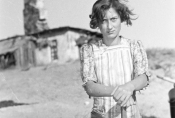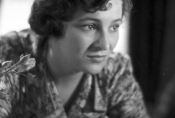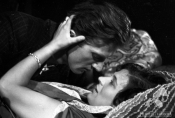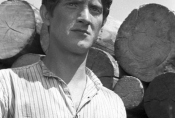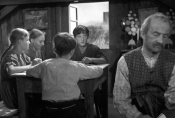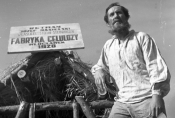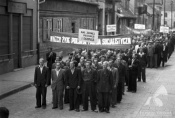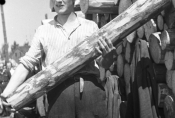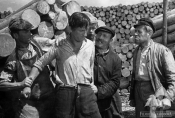CELLULOSE [1953]
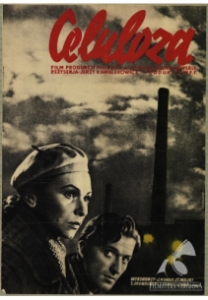
year:
- 1953
release date:
- 27 IV 1954
runtime:
- 120 min
directed by:
- Jerzy Kawalerowicz
written by:
- Igor Newerly, Jerzy Kawalerowicz based on the novel by Igor Newerly
director of photography:
- Seweryn Kruszyński
cast:
- Józef Nowak [Szczęsny], Stanisław Milski [Tomasz; majster Czerwiaczek], Zbigniew Skowroński [Roman Korbal], Teresa Szmigielówna [Zofia Czerwiaczkowa], Halina Przybylska [Weronka], Janina Szydłowska [a communist listening to Szczęsny’s story], Wojciech Pilarski [Marusik], Zbigniew Józefowicz [Jan Gawlikowski], Janusz Ściwiarski [Sumczak], Stanisław Jasiukiewicz [Bolesław Gąbiński], Jerzy Szpunar [Stanisław Rychlik, a laborer], Hanka Bielicka [Szamotulska], Mirosław Szonert [Father Woyda], Tadeusz Kondrat [Natan Lubart, a tailor], Ruth Kowalska [Mrs. Lubart]
edited by:
- Krystyna Tunis
music by:
- Henryk Czyż
production design:
- Roman Mann
produced by:
- Wytwórnia Filmów Fabularnych, Łódź
executive producer:
- Ludwik Hager
awards:
-
- State Award 1955: 1st degree for Jerzy Kawalerowicz, 2nd degree for Stanisław Milski, 2nd degree for Józef Nowak
About the film
The first part (Part Two – Under the Phrygian Star) of a proletarian epic executed in the spirit of neorealism, black, but with an ending in line with the propaganda of time.
Unemployed and homeless, Szczęsny tells the story of his life to a girl. Along with his father, he was building wooden bungalows for a private entrepreneur who tried to cheat them. Their home was poor and because of malnutrition Szczęsny started to lose his vision. In search of work, they go to the town of Włocławek, which the unemployed dubbed "America", but there is nothing there for them either.
At a meeting of the Christian Democratic trade union, Szczęsny defends a priest from being beaten by the Socialists, and the cleric reciprocates by helping him and his father get a job at a sawmill. They are joined by Korbal − a shifty character; the life of the family is somewhat stabilised. Szczęsny witnesses a murder committed by an unemployed man. Fearing the legal process, he goes to Warsaw, where he works in Czerwiaczek’s carpenter workshop. An affair with the master’s wife forces the boy to leave the workshop. He is drafted to the army where his life is made difficult since he is ‘red’ (leftist). After leaving the service, he gets a job in health insurance as someone who tracks down those who provide unregistered domestic help. In the morning Szczęsny’s story is concluded. He walks the girl to the station, where she gives him the "Red Flags" for encouragement, which is meant to push the boy towards a new conscious way of action.
Jan Słodowski, Leksykon polskich filmów fabularnych, Warszawa 1996
